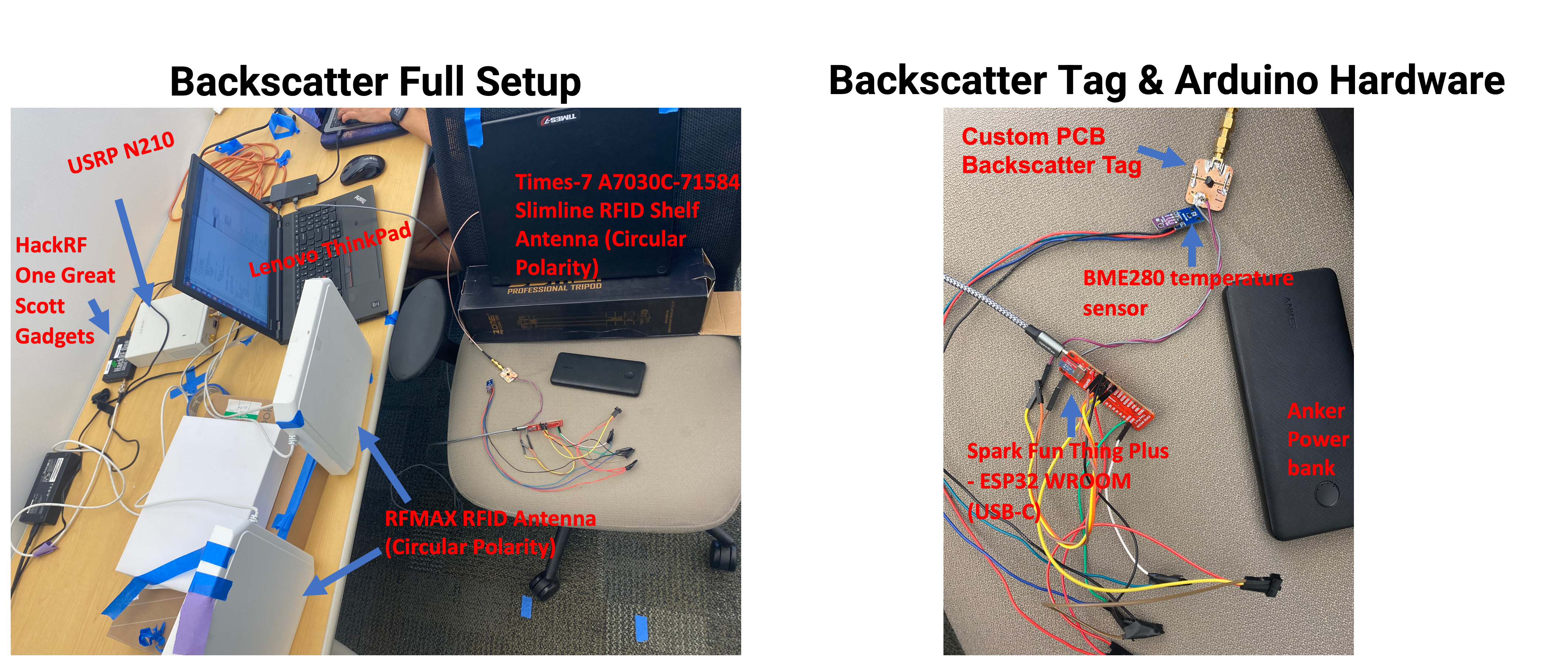Backscatter for Low-power IoT Environmental Sensing
Supervised by Prof. Ashutosh Dhekne
This project has received support of $3000 through the CDAIT 2024 Student IoT Innovation Challenge.
In this project, we built an ultra-low power backscatter device for monitoring Atlanta’s urban heat islands, using digital communications techniques to extend the range between the tag and transmitter/receiver by sacrificing throughput. Specifically, we build on the work by Arora et al.’s analog, 915MHz backscatter tag by modifying the system to communicate temperature readings as digital data. We explore digital range-increasing techniques such as forward error correction (FEC) and investigate low-power digitization and signal generation. We build a system consisting of a co-located transmitter and receiver capable of reading temperature data from a single backscatter tag. We achieve a range of 7.5+ meters between the transmitter/receiver and a battery-powered tag and also design a tag that could theoretically run on less than 100 uW of power. We leave the actual implementation of this low-power tag, the energy harvesting system, and system scalability to future work.

Download report, presentation here.
